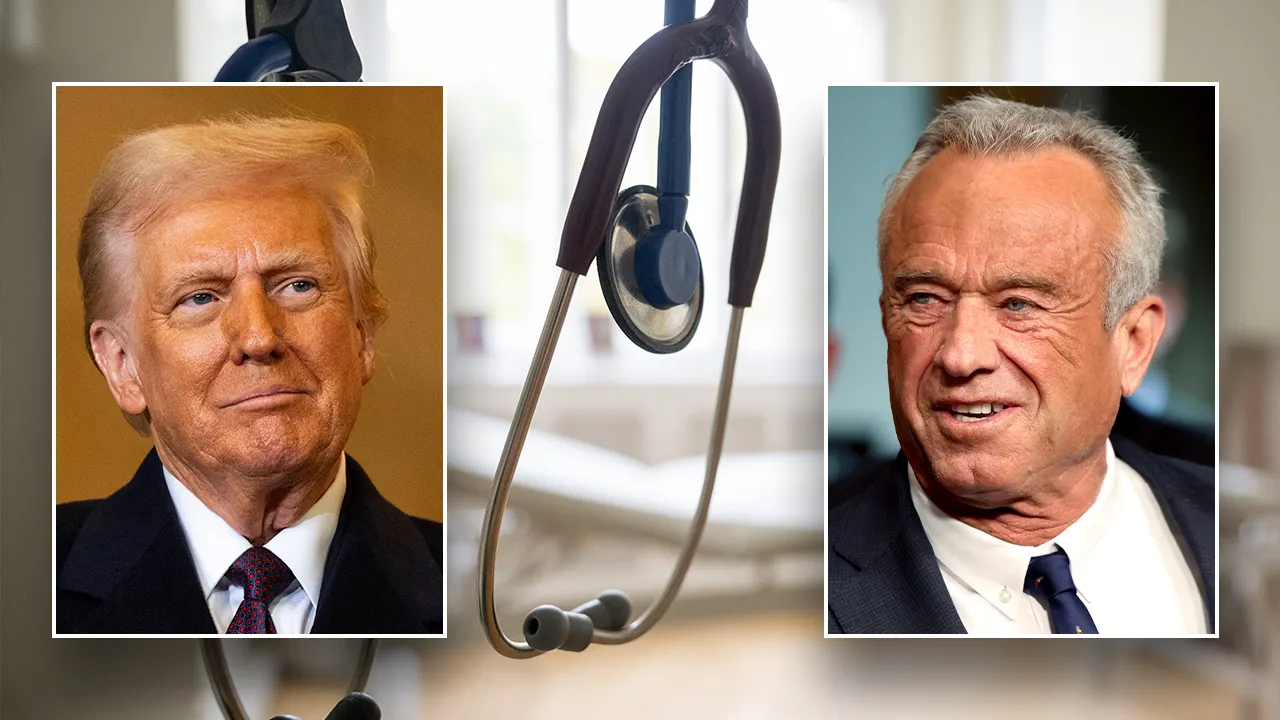Unpacking Trump’s Health Initiative: A Focus on Autism and Chronic Illnesses
Former President Donald Trump’s newly launched health commission is designed to address pressing public health challenges, specifically focusing on autism and chronic illnesses. This initiative aims to reshape America’s approach to health care and how the nation responds to these complex issues. With a growing awareness of the prevalence of autism and chronic diseases, the commission seeks to implement strategies that promote better health outcomes for affected individuals and families.
The Background of the Initiative
The health initiative emerges from a backdrop where autism spectrum disorder (ASD) affects approximately 1 in 44 children in the United States, according to the Centers for Disease Control and Prevention (CDC). Additionally, chronic illnesses such as diabetes, heart disease, and autoimmune disorders are on the rise, affecting millions of Americans and straining healthcare resources.
Recognizing the urgency of these issues, Trump’s health commission aims to create a comprehensive approach that not only addresses immediate health concerns but also lays the groundwork for long-term solutions. The initiative’s focus on autism and chronic illnesses reflects a commitment to understanding the underlying causes and bettering the quality of life for those affected.
Key Objectives of the Health Initiative
The health commission has outlined several key objectives to be pursued under this initiative:
- Increased Research Funding: One of the primary goals is to boost funding for research into the causes and treatments of autism and chronic illnesses. By investing in innovative research, the initiative hopes to uncover new insights and improve therapeutic options.
- Public Awareness Campaigns: Raising awareness about autism and chronic diseases is crucial. The commission plans to launch educational campaigns aimed at dispelling myths, improving understanding, and fostering empathy towards those living with these conditions.
- Improving Access to Care: Ensuring that individuals with autism and chronic illnesses have access to appropriate healthcare services is a top priority. The initiative seeks to reduce barriers to care, whether they are financial, geographical, or systemic.
- Collaboration with Stakeholders: The initiative encourages collaboration among various stakeholders, including healthcare providers, researchers, and advocacy groups. By working together, they can share resources and expertise to tackle these health challenges more effectively.
Understanding Autism: A Multifaceted Challenge
Autism is not a single disorder but a spectrum of conditions characterized by challenges with social skills, repetitive behaviors, and communication. The complexity of autism requires a multifaceted approach to treatment and support.
One of the core components of Trump’s health initiative is to enhance early diagnosis and intervention. Research shows that early intervention can significantly improve outcomes for children with autism. By equipping parents, educators, and healthcare professionals with the tools to recognize signs of autism early, the initiative aims to facilitate timely access to services.
Moreover, the initiative emphasizes the importance of holistic care. This involves not only addressing the medical needs of individuals with autism but also considering their emotional, social, and educational needs. Supporting families and caregivers through resources and training is also a vital aspect of this approach.
Chronic Illnesses: A Growing Epidemic
Chronic illnesses pose a significant challenge to public health in the United States. Conditions like diabetes, heart disease, and respiratory disorders are among the leading causes of morbidity and mortality. Trump’s health initiative seeks to tackle these issues head-on by promoting preventive care and lifestyle changes.
One of the proposed strategies is to increase public health campaigns that encourage healthy eating, regular exercise, and routine health screenings. By fostering a culture of wellness, the initiative aims to reduce the incidence of chronic diseases and empower individuals to take charge of their health.
Additionally, the commission plans to address disparities in healthcare access that disproportionately affect marginalized communities. By implementing targeted programs and services, the initiative seeks to ensure that all individuals, regardless of their background, receive the care they need.
Integrating Technology in Health Solutions
Another innovative aspect of Trump’s health initiative is the incorporation of technology into healthcare solutions. Telehealth services, for example, have gained immense popularity, particularly during the COVID-19 pandemic. Expanding access to telehealth can make healthcare services more accessible for individuals with autism and chronic illnesses, especially in remote or underserved areas.
Furthermore, the use of data analytics can help identify trends and patterns in health outcomes, facilitating more informed decision-making. By leveraging technology, the initiative aims to create a more responsive and efficient healthcare system.
Community Engagement and Support
Community engagement is a cornerstone of the health initiative. By involving local organizations, schools, and healthcare systems, the commission can create a robust network of support for individuals with autism and chronic illnesses. Community programs that focus on social inclusion, skill development, and peer support can significantly enhance the quality of life for those affected.
Moreover, the initiative encourages individuals and families to share their stories and experiences. Personal narratives can help raise awareness, foster understanding, and inspire action within communities. By amplifying the voices of those directly impacted by autism and chronic illnesses, the initiative can drive meaningful change.
Conclusion: A Hopeful Path Forward
Trump’s health initiative represents a significant step towards addressing the complex issues surrounding autism and chronic illnesses in America. By prioritizing research, increasing access to care, and fostering community engagement, the initiative aims to reshape the public health landscape.
As we move forward, it is essential to remain optimistic and proactive in our approach to health challenges. With concerted efforts and collaboration among stakeholders, there is hope for improved outcomes for individuals affected by autism and chronic diseases. Together, we can create a healthier, more inclusive society that values every individual’s well-being.
In summary, Trump’s health commission is more than just a governmental initiative; it is a call to action for all of us to recognize and respond to the pressing health challenges that affect millions of Americans. By embracing this initiative, we can contribute to a future where health equity is a reality, and everyone has the opportunity to thrive.
See more WebMD Network



